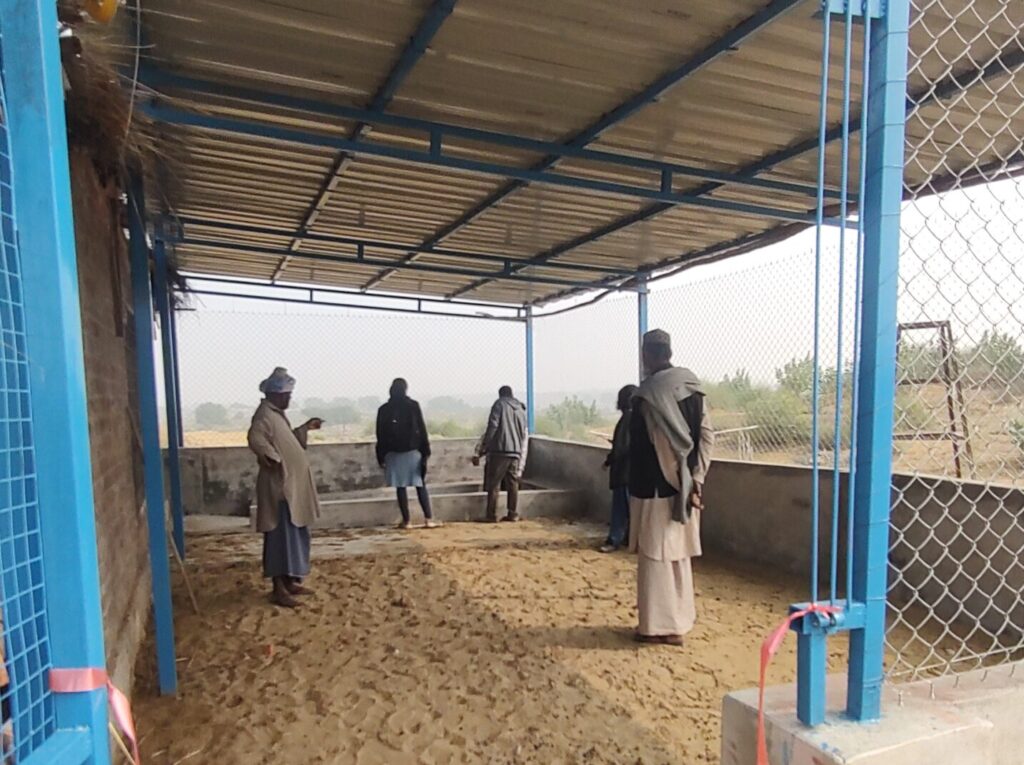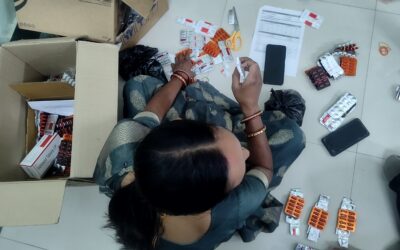A Common Facility Centre (CFC) is a shared physical space for a group of individuals or businesses to conduct mutually beneficial activities. These facilities aim to offer collective spaces in an efficient and cost-effective way for multiple people instead of each person investing in separate such facilities. CFCs can be found in various sectors and industries, including manufacturing, agriculture, and information technology. The concept is particularly relevant in the context of small and medium-size enterprises or individuals who may not have the resources to independently establish and maintain such places.
The Ministry of Micro, Small & Medium Enterprises (MSMEs) have a scheme called ‘Micro and Small Enterprises Cluster Development Program (MSE-CDP)‘ in which the ministry supports in setting up the CFCs, creating tangible assets that can help small enterprises in maintaining, reviving and/or improving production lines that cannot be undertaken by individual units.
Visit to a CFC
A few weeks ago, my colleagues and I went to Bajju, a town near Bikaner, Rajasthan. One of the reasons behind the visit was to look at the CFCs established there by ‘Urmul Seemant Samiti (USS)‘, an organization known for their pioneering work in this indo-pak border area. With the aim to empower local communities and enable them to be more self-reliant, USS has been working here since its inception in 1994. The URMUL ecosystem has a few enterprises that make and sell wool products.

In order to procure the good quality wool, USS established CFCs Bajju. Initially, Urmul had setup a CFC on the government’s land but later, due to ownership related issues, it became non-operational. Then, USS came up with privately owned CFCs where a local person would set it up on their own land. They would have all the machinery and water facility at the center, and whoever uses the facility will pay a fee to the owner.
Narayanpur Village
We went to one such CFC owned by Khayam bhai in Narayanpur. He took us around the facility, and explained the ongoing activities. Here, he offers these three things:
- Facility to wash the Sheep
- Shearing of the sheep
- Sorting and Grading of the wool
The place is located on an elevated ground near a pond which makes it easier for Khayam bhai to use the natural resource. It servers around 5-6 villages around Narayanpur. The facility has two buildings, one with a thatched roof, and another with a tin on top. The entire setup is powered with solar panels.

Shearing Wool
During the shearing season, shepherds comes to the centre with their sheep. A day before the shearing, sheep are sprayed with a shampoo to clean all the dust accumulated on their skin and wool. Then, they are washed in the pit filled with water. Shearing which takes place in the thatched roof building. There are five shearing machines of varied capacities. The shepherds use it themselves but shearing being a community activity, they are always seen helping each other. All of them have been trained on the machines. Before CFC was built, shepherds used to buy water tankers to wash their sheep and used traditional scissors to shear them.
The sheared wool is collected and stored in bags. USS sorts and grades the wool before buying it from the shepherds at better prices than what the market offers at Bikaner wool Mandi. There, the pricing is also more dynamic.
Without the CFC, the shepherds incurred a shearing cost of Rs. 20 per sheep. In CFC, they pay Rs. 10 for washing the sheep and Rs.30 for shearing. Even though they shear themselves, they have to pay for using the machine. This has doubled their cost but they are now getting higher prices for their wool without having to go to Bikaner. In essence, while the shearing cost has gone up, the returns have grown at a higher rate. Plus, the entire process has become easier to manage.
Replication
At Sahjeevan, we are planning to establish CFCs with similar facilities in two clusters of Kutch. This visit was immensely useful to understand the feasibility and complications before doing it. Here, the idea is to set it up on a public land with the same facilities of cleaning, shearing, sorting and grading. About the ownership, the CFC will be run by a committee formed with representatives from all villages in the cluster. With the shearing season approaching, I’m excited to set up our first CFC in Bhadra cluster of Kutch.




0 Comments